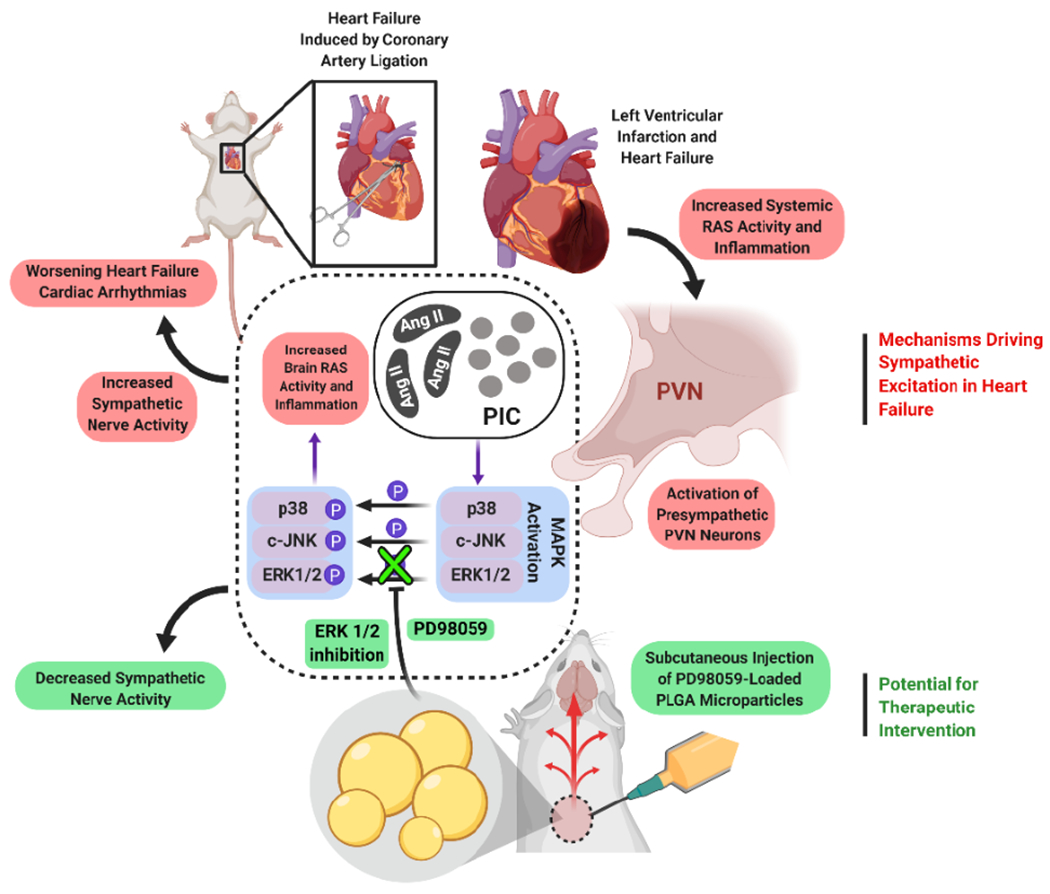Figure 4:

Schematic illustrating the putative effect of subcutaneously administered PD98059-loaded microparticles to mitigate neurochemical abnormalities in the PVN that contribute to the progression of heart failure (HF). In rats with coronary artery ligation-induced HF without treatment, increased systemic renin-angiotensin system (RAS) activity and inflammation upregulate levels of angiotensin II (Ang II) and proinflammatory cytokines (PIC) in the PVN, increasing phosphorylation (P) of ERK1/2. The resulting augmentation of brain RAS activity and inflammation increases sympathetic nerve activity, further compromising cardiac performance. We propose that the subcutaneously injected PD98059-loaded microparticles will provide sustained plasma levels of PD98059, resulting in a prolonged inhibition of ERK1/2 phosphorylation. Other mitogen-activated protein kinase (MAPK) signaling pathways (p38 MAPK and c-JNK) are unaffected by treatment with this selective MEK1/2 inhibitor. This treatment strategy significantly lowered plasma NE levels compared to vehicle-treated rats as an indication of reduced sympathetic nerve activity, which sets it out as a potential therapeutic intervention.
